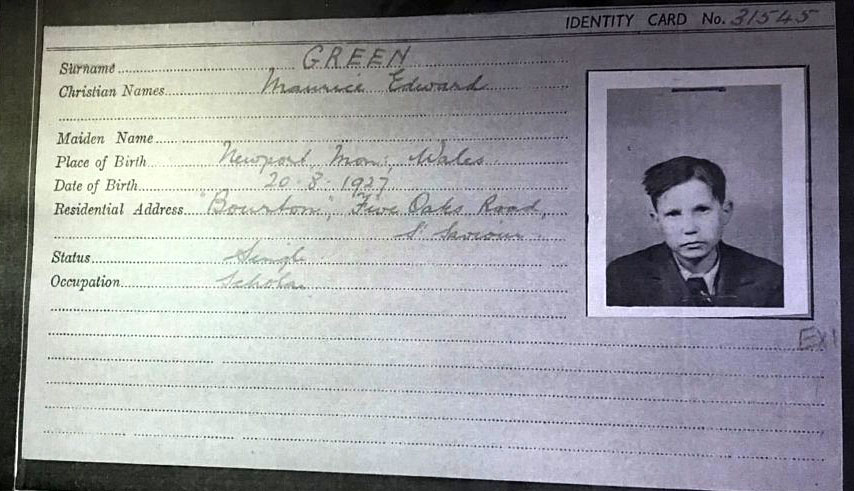The German Register Cards are a set of unique cards which explore the background of people who lived through the occupation. German authorities made it compulsory for everyone on the Island to have one of these cards when they first occupied the island. The register process involved the collection of personal details (Name, Address, Date of Birth, Occupation) and a picture of each islander. The German authorities kept an official set of all the registration which can now all be viewed at Jersey’s Archive. The card’s were only given to those over the age of 14, anyone under this age would have their details placed on the back of their fathers Identity card. The cards were constantly updated, whenever a family moved address, had another child etc. Each card was accompanied by a blue form which had additional information, such as physical peculiarities. Islander’s were forced to carry their cards with them everywhere, so they could easily be identified by German soldiers. Many of the Jersey occupation registration cards have been listed by UNESCO, which means they are registered as they have important cultural or historical significance.These registration cards can now be found within Jersey’ Archive and the War Tunnels, which allows us to explore the past and personal lives of these people. The information will tell us how these people were treated as well as a reflection of their life during the occupation.

Maurice Edwarde Green was only 12 years of age when the first German planes flew over the island, dropping the two cylinders, with messages declaring the start of the occupation. One of his memories was being commanded to place white flags on all buildings around the Island, in order to ensure that the German’s knew the Island was surrendering, so they would not be bombed. His mother placed many white towels onto bamboo sticks and hung them out of their window. On his German Registration Card it informed me that he was diabetic and has been on insulin from a very young age, during the occupation people where put on rations making it hard for Maurice to get his insulin. He had the Jersey States Department of Health importing and handing him over the hormones to keep his body working. Very soon the insulin supply ran short, making dieting a massive issue for diabetics living in the war. During the insulin shortage he was forced to live in a hospital, because he was diabetic, were Maurice kept leaving as he did not enjoy sitting/lying down all day, the nurses all thought he was mad. Eventually, the Red Cross parcels began to ship in he went and collected more insulin off the ‘Vega’, however he was told he was not allowed on the ship to take the medication. Due to him learning German from a young age he spoke to the solider who refused entry saying his friend who hasn’t seen for ages was onboard, thus allowing him to be granted access onto the rear of the ship. Maurice lived through the pain and horror’s of the war, but some people may consider his story even more horrific due to him not being able to get access to insulin, which is keeping his body a live. The short story gives us insight into what the war was like for medically ill citizens and informs us about the dangers and risks they took in order to survive.
